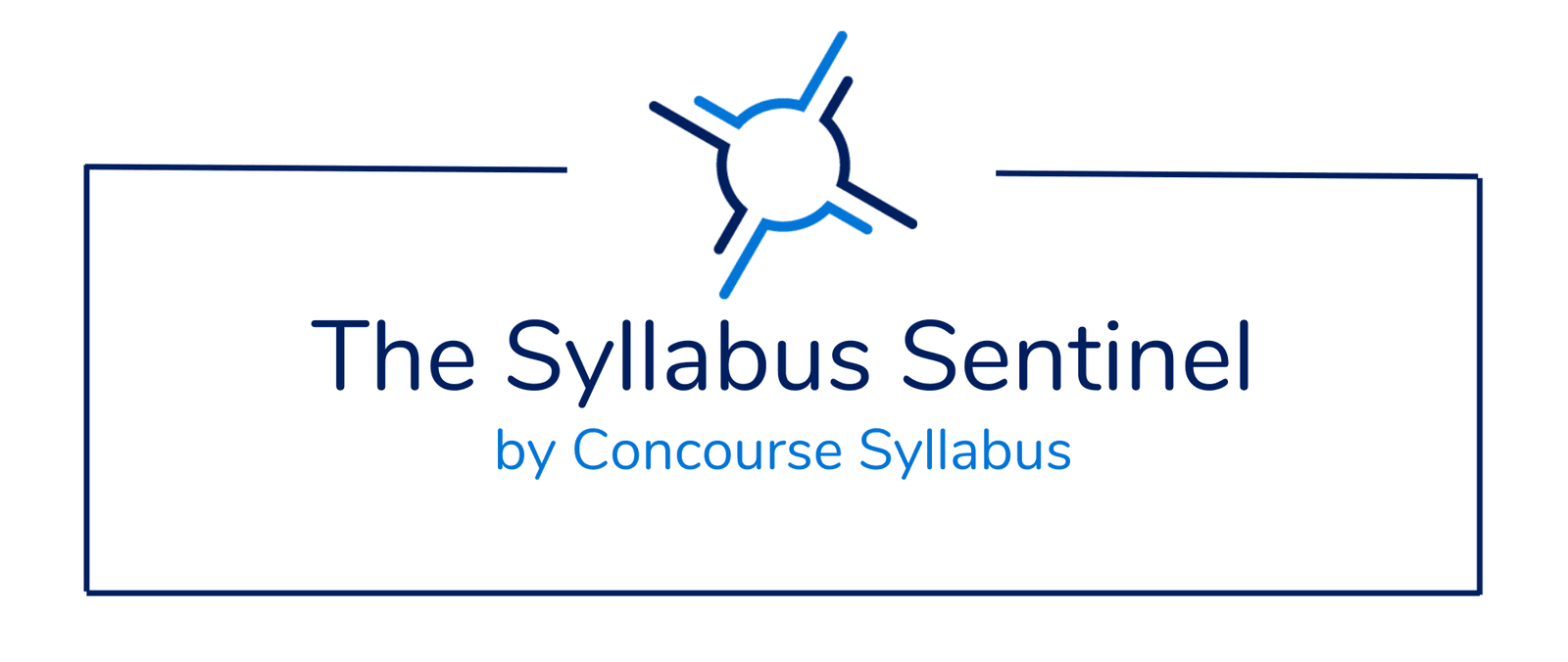
September 2024 - The Improvement Edition
You did it. The first day of school is (most likely) behind you. You laid a solid foundation, and you’re cruising forward through the semester. But you may already have noticed or thought of ways you could do it a little better next time - small tweaks that could have a big impact. When that happens, it’s incredibly important to pause and give those opportunities our focus before the next thing pushes them out. The groundwork is in place; there’s nowhere to go but up! In this Syllabus Sentinel edition, we’re focusing on ways to improve processes and initiatives at your institution (and here at Concourse Syllabus).
In this edition:
- Improving Mental Health
- Improving Student Engagement
- Improving Belonging and Connection
You did it. The first day of school is (most likely) behind you. You laid a solid foundation, and you’re cruising forward through the semester. But you may already have noticed or thought of ways you could do it a little better next time - small tweaks that could have a big impact. When that happens, it’s incredibly important to pause and give those opportunities our focus before the next thing pushes them out. The groundwork is in place; there’s nowhere to go but up! In this Syllabus Sentinel edition, we’re focusing on ways to improve processes and initiatives at your institution (and here at Concourse Syllabus).
In this edition:
Improving Mental Health
Improving Student Engagement
Improving Belonging and Connection
Improving Mental Health
Institutions are recognizing more than ever the impact of mental health on students’ success and well-being. At institutions everywhere, leaders and faculty members are looking for ways to improve it. A syllabus is a great place to focus that energy. Ashley Mowreader lists out ways that professors can incorporate inclusive and forward-thinking policies regarding mental health and education on their course syllabi. For example: many students are advocating for mental health days that are excused as a way to better themselves as they juggle the many responsibilities of college education. You can read about the language and policy suggestions below as a way to find inspiration for your own institution.
Improving Student Engagement
Improving Student Engagement
While it’s obvious that the main purpose of college education is the education itself, some students need specific support in order to make the most of their course. Providing an engaging course that goes beyond just textbook work and essay creation can bring the course to life for students who need that extra boost. The Chronicle discusses this “transactional” view of college education and how to create a classroom that students will want to engage with in the article below, reporting that learning in higher education should be more than grades and textbooks, but experiences and skill sets that provide long-term stability in their field.
Improving Belonging and Connection
Do you remember unpacking in your first college dorm? Or the first time you stepped foot in a get-together as you started your college career? These are core memories that your students are making right now! Students want to feel as though they belong somewhere, especially when they’re away from home, in a new environment, and/or intimidated by college in general. Inside Higher Education reports on six practical ways to engage your students in their extracurricular life, promoting a sense of belonging beyond the classroom.

